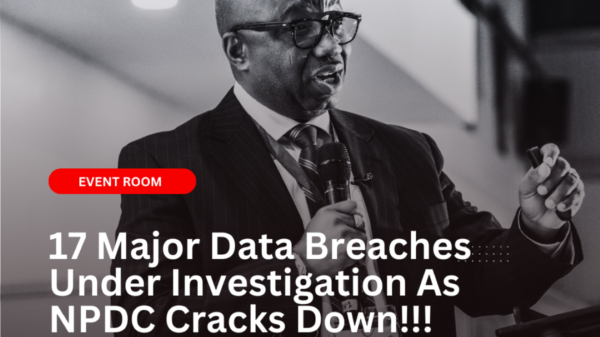Introduction
Definition of Managed Detection and Response (MDR)
Managed Detection and Response (MDR) is a comprehensive cybersecurity service that combines advanced threat detection, incident response, and continuous monitoring capabilities. Unlike traditional security solutions that primarily focus on prevention (such as firewalls and antivirus software), MDR takes a proactive approach by actively hunting for potential threats within an organization’s network infrastructure.
MDR services typically involve a team of cybersecurity experts who utilize sophisticated tools and technologies to monitor network traffic, detect suspicious activities, and respond to security incidents in real-time. These experts analyze data from various sources, including logs, endpoints, and network traffic, to identify potential threats and take appropriate action to mitigate risks.
According to CrowdStrike
“Managed Detection and Response (MDR) is a cybersecurity service that swiftly identifies and mitigates threats by combining technology with human expertise. MDR involves threat hunting, monitoring, and rapid response to limit the impact of cyber threats without the need for additional staffing.”
In essence, MDR provides small and medium-sized businesses (SMBs) with the expertise and resources necessary to defend against a wide range of cyber threats, including malware, ransomware, phishing attacks, and advanced persistent threats (APTs). By outsourcing their cybersecurity needs to MDR providers, SMBs can enhance their security posture and reduce the risk of data breaches and cyberattacks.
Significance of Cybersecurity for SMBs
Cybersecurity is of paramount importance for SMBs due to the increasing frequency and sophistication of cyber threats targeting organizations of all sizes. While large enterprises may have dedicated IT security teams and robust cybersecurity measures in place, SMBs often lack the resources and expertise to adequately protect their sensitive data and digital assets.
The significance of cybersecurity for small and medium-sized businesses (SMBs) cannot be overstated, as highlighted in the article “Why Small Businesses Need to Take Cybersecurity Seriously” published on Wired’s platform. Despite the common perception that cybercriminals primarily target large enterprises, SMBs are equally vulnerable to cyber threats.
According to the article, cybercriminals do not discriminate based on the size of the organization. In fact, some of the most significant data breaches in recent history have originated from attacks on small businesses. For instance, the article mentions a cyberattack in 2014 that compromised the personal data of over 100 million accounts, initiated through the network of an HVAC contractor working with a major retailer.
A successful cyberattack can have devastating consequences for SMBs, including financial losses, reputational damage, and legal liabilities. Moreover, the fallout from a data breach can undermine customer trust and confidence, leading to long-term negative impacts on business operations and growth.
Given the high stakes involved, SMBs must prioritize cybersecurity and implement robust security measures to safeguard their digital assets and sensitive information. This includes investing in advanced security solutions, conducting regular security assessments, and providing cybersecurity training for employees.
How SMBs can benefit from MDR
The purpose of this article is to explore how SMBs can leverage Managed Detection and Response (MDR) services to enhance their cybersecurity posture and protect against evolving cyber threats. In today’s increasingly interconnected and digitized business environment, SMBs face a growing number of cybersecurity challenges, ranging from malware infections to targeted cyberattacks.
MDR offers SMBs a proactive and comprehensive approach to cybersecurity, providing them with the expertise, technology, and resources necessary to detect, respond to, and mitigate cyber threats effectively. By outsourcing their cybersecurity needs to MDR providers, SMBs can access advanced threat detection capabilities, real-time incident response, and continuous monitoring of their network infrastructure.
Throughout this article, we will explore the key components of MDR, the benefits it offers for SMBs, and best practices for implementing MDR effectively. We will also examine real-world case studies of SMBs that have successfully leveraged MDR to enhance their security posture and protect their digital assets.
Overall, the goal of this article is to provide SMBs with actionable insights and practical advice on how they can harness the power of Managed Detection and Response to safeguard their business from cyber threats and ensure long-term success in today’s digital landscape.
Explanation of MDR components and functionality
Managed Detection and Response (MDR) encompasses a set of integrated components and functionalities designed to enhance cybersecurity posture by proactively detecting and responding to cyber threats. The core components of MDR typically include:
• Threat Detection: MDR employs advanced threat detection technologies, such as machine learning algorithms and behavioral analytics, to identify anomalies and suspicious activities within an organization’s network environment. This proactive approach enables early detection of potential threats before they can cause significant damage.
• Continuous Monitoring: MDR solutions continuously monitor network traffic, endpoints, and data flows in real-time to detect and mitigate cyber threats promptly. By maintaining constant vigilance, MDR ensures that security incidents are identified and addressed swiftly, minimizing the risk of data breaches and disruptions to business operations.
• Incident Response: One of the key functionalities of MDR is its incident response capabilities. In the event of a security incident or breach, MDR teams rapidly investigate and analyze the threat, assess the impact, and implement appropriate remediation measures to contain and mitigate the damage. This proactive response helps organizations minimize the impact of security incidents and restore normal operations quickly.
• Forensic Analysis: MDR solutions often include forensic analysis capabilities, allowing cybersecurity experts to conduct in-depth investigations into security incidents. By analyzing the root cause of incidents and identifying vulnerabilities in the system, MDR helps organizations strengthen their security defenses and prevent future attacks.
In summary, MDR combines advanced technologies with human expertise to provide comprehensive threat detection, continuous monitoring, incident response, and forensic analysis capabilities, thereby enabling organizations to bolster their cybersecurity defenses and mitigate cyber risks effectively.
Comparison with Traditional Security Measures
MDR differs from traditional security measures, such as antivirus software and firewalls, in several key aspects:
1. Proactive Approach: Unlike traditional security measures, which primarily focus on preventing known threats, MDR takes a proactive approach to cybersecurity by actively hunting for potential threats and anomalies within the network environment. This proactive stance allows MDR to detect and respond to emerging threats that may evade traditional security defenses.
2. Continuous Monitoring: While traditional security measures often provide point-in-time protection, MDR solutions offer continuous monitoring of network traffic, endpoints, and data flows in real-time. This continuous monitoring enables MDR to detect and respond to security incidents promptly, minimizing the dwell time of attackers within the network.
3. Integrated Threat Intelligence: MDR solutions leverage threat intelligence feeds and advanced analytics to identify patterns and indicators of compromise (IOCs) associated with known and emerging cyber threats. By integrating threat intelligence into their operations, MDR providers enhance their ability to detect and mitigate sophisticated threats effectively.
4. Human Expertise: One of the key differentiators of MDR is the inclusion of human expertise alongside technology-driven capabilities. MDR teams consist of cybersecurity experts who possess the knowledge and skills required to analyze complex security incidents, investigate threats, and implement appropriate remediation measures. This human element enhances the effectiveness of MDR solutions, especially in dealing with advanced and targeted attacks.
In contrast, traditional security measures often rely solely on automated tools and lack the human intelligence necessary to respond effectively to sophisticated cyber threats. When comparing Managed Detection and Response (MDR) with traditional cybersecurity measures, further significant disparities emerge, as highlighted by CyberMaxx’s resources on MDR and em360tech’s article on MDR versus traditional security measures.
Advantages of MDR for SMBs
Managed Detection and Response (MDR) offers several advantages for small and medium-sized businesses (SMBs) seeking to enhance their cybersecurity posture in today’s evolving threat landscape. Firstly, MDR provides SMBs with access to advanced detection capabilities that surpass traditional cybersecurity measures. By leveraging sophisticated techniques such as threat hunting and behavior analysis, MDR can identify complex and stealthy threats that may evade traditional defenses, thus ensuring a higher level of protection for SMBs’ digital assets.
Secondly, MDR offers faster response times compared to traditional cybersecurity solutions. With immediate remote mitigative response capabilities, MDR enables SMBs to swiftly contain and mitigate threats, minimizing potential damage and disruption to their operations. This rapid response is crucial for SMBs, as it allows them to mitigate the impact of cyber incidents and maintain business continuity.
Additionally, MDR provides comprehensive support services across various areas of cybersecurity, including monitoring, incident response, threat intelligence, vulnerability management, and compliance. This end-to-end support ensures that SMBs have access to all necessary resources and expertise to defend against cyber threats effectively, without the need for additional staffing or resources.
Furthermore, MDR offers continuous monitoring of network traffic, endpoints, system logs, and other relevant data sources, enabling timely detection and response to minimize the impact of cyber incidents. This continuous monitoring provides SMBs with enhanced visibility into their IT environments, allowing them to identify and address security issues proactively.
Finally, MDR leverages human expertise to analyze and interpret alerts generated by technology, enabling quick and accurate response actions. Skilled cybersecurity professionals play a critical role in investigating security incidents and assessing the severity of threats, ensuring that SMBs can effectively defend against cyber threats with limited resources.
Overall, MDR offers SMBs a proactive, comprehensive, and cost-effective approach to cybersecurity, enabling them to enhance their security posture and protect their digital assets against evolving cyber threats. By embracing MDR, SMBs can benefit from advanced detection capabilities, faster response times, comprehensive support services, continuous monitoring, and human expertise, ensuring robust cybersecurity defenses in today’s challenging threat landscape.
Cybersecurity Challenges Faced by SMBs
Small and medium-sized businesses (SMBs) face a myriad of cybersecurity challenges in today’s digital landscape, stemming from various factors. Firstly, the lack of dedicated cybersecurity expertise poses a significant challenge for SMBs. Unlike larger enterprises that often have specialized cybersecurity teams, SMBs may lack the resources to hire dedicated cybersecurity professionals. This shortage of expertise can leave SMBs vulnerable to cyber threats, as they may struggle to effectively implement and manage cybersecurity measures.
Secondly, resource constraints present a considerable obstacle for SMBs when it comes to implementing robust security measures. Limited budgets and IT resources can hinder SMBs’ ability to invest in comprehensive cybersecurity solutions and technologies. As a result, SMBs may resort to using basic, off-the-shelf security tools that may not adequately protect against sophisticated cyber threats, leaving them exposed to potential security breaches and data loss.
Moreover, SMBs are increasingly becoming targets of sophisticated cyber threats, further exacerbating their cybersecurity challenges. Cybercriminals are actively targeting SMBs due to factors such as the perceived lack of robust security measures and the potential value of sensitive data held by these organizations. From ransomware attacks to phishing scams and business email compromise (BEC) schemes, SMBs face a diverse range of cyber threats that are continually evolving and becoming more sophisticated.
In summary, SMBs grapple with cybersecurity challenges including the lack of dedicated expertise, resource constraints for implementing robust security measures, and the growing threat landscape characterized by increasingly sophisticated cyber threats. Addressing these challenges requires a concerted effort from SMBs to prioritize cybersecurity, invest in appropriate technologies and expertise, and stay vigilant against emerging threats. Failure to adequately address these challenges could have severe repercussions for SMBs, including financial losses, reputational damage, and legal liabilities.
Benefits of MDR for SMBs
Managed Detection and Response (MDR) offers several significant benefits tailored specifically to the needs of small and medium-sized businesses (SMBs). Firstly, MDR enables proactive threat detection and response, which is crucial for SMBs facing an increasingly complex threat landscape. By leveraging advanced technology and human expertise, MDR proactively hunts for potential threats within an organization’s network infrastructure, allowing for the early detection of malicious activities and potential security breaches. This proactive approach not only helps to minimize the impact of cyber threats but also enables SMBs to respond swiftly and effectively, reducing the risk of data loss, financial damage, and reputational harm.
Moreover, MDR provides continuous monitoring and analysis of network traffic, endpoints, system logs, and other relevant data sources. This continuous monitoring allows SMBs to identify and respond to security incidents in real-time, ensuring that any potential threats are addressed promptly before they can escalate into more significant issues. Additionally, MDR offers in-depth analysis of security events and trends, providing valuable insights into the organization’s overall security posture and helping SMBs to identify and address potential vulnerabilities before they can be exploited by cybercriminals.
Furthermore, MDR offers tailored security solutions that are specifically designed to meet the unique needs and budget constraints of SMBs. Unlike traditional cybersecurity solutions, which can be costly and complex to implement and maintain, MDR provides SMBs with access to advanced security capabilities and expertise at a fraction of the cost. MDR providers offer flexible pricing models and scalable solutions, allowing SMBs to choose the level of protection that best suits their needs and budgetary constraints. This ensures that SMBs can benefit from robust cybersecurity defenses without breaking the bank, enabling them to focus on growing their business with confidence in their security posture. Overall, the proactive threat detection and response capabilities, continuous monitoring and analysis, and tailored security solutions offered by MDR make it an ideal choice for SMBs looking to enhance their cybersecurity defenses in today’s challenging threat landscape.
Key Considerations When Choosing an MDR Provider
Choosing the right Managed Detection and Response (MDR) provider is crucial for small and medium-sized businesses (SMBs) looking to enhance their cybersecurity defenses effectively. Several key considerations should be taken into account when evaluating MDR providers:
1. Scalability of MDR Solutions: Scalability is a critical factor to consider when selecting an MDR provider, especially for SMBs that anticipate growth or fluctuations in their cybersecurity needs. An ideal MDR solution should be flexible and scalable, capable of accommodating changes in the organization’s size, scope, and complexity over time. This includes the ability to scale up or down the level of service provided, as well as the capacity to adapt to evolving cybersecurity threats and challenges. SMBs should inquire about the scalability features of MDR solutions offered by potential providers, such as the ability to add or remove users, endpoints, or network segments as needed. Additionally, the MDR provider should have a proven track record of successfully supporting organizations of similar size and scale, demonstrating their ability to grow and adapt alongside their clients.
2. Cost-Effectiveness and Transparent Pricing: Cost-effectiveness and transparent pricing are essential considerations for SMBs when selecting an MDR provider. While cybersecurity is a critical investment for SMBs, budget constraints often play a significant role in decision-making. Therefore, SMBs should seek MDR providers that offer competitive pricing models tailored to their budgetary constraints. Moreover, transparency in pricing is crucial to ensure that SMBs fully understand the cost structure of the MDR solution and can accurately assess its affordability and value. MDR providers should be transparent about their pricing tiers, billing methods, and any additional fees or charges associated with their services. SMBs should also inquire about any hidden costs or contractual obligations to avoid surprises down the line.
3. Customization Options to Fit SMB Needs: Customization options are essential for SMBs to ensure that the MDR solution meets their specific cybersecurity needs and requirements. An effective MDR provider should offer flexible and customizable solutions tailored to the unique challenges and priorities of SMBs. SMBs should look for MDR providers that offer customizable service packages, allowing them to select the specific services and features that best align with their cybersecurity objectives and budget. This may include options for tailored threat intelligence feeds, incident response plans, reporting capabilities, and ongoing support services. Furthermore, the MDR provider should demonstrate a willingness to collaborate closely with SMBs to understand their unique cybersecurity requirements and develop customized solutions that address their specific concerns. This partnership approach ensures that SMBs receive personalized support and guidance throughout the implementation and deployment process.
4. Reputation and Track Record of MDR Providers: Reputation and track record are critical factors to consider when evaluating MDR providers. SMBs should conduct thorough research and due diligence to assess the reputation, credibility, and reliability of potential MDR providers before making a decision. SMBs should seek recommendations and referrals from trusted sources, such as industry peers, cybersecurity experts, and online reviews. Additionally, they should evaluate the MDR provider’s track record and performance history, including their experience working with SMBs and their success in detecting and responding to cybersecurity threats. Furthermore, SMBs should inquire about the MDR provider’s certifications, accreditations, and compliance with industry standards and regulations. This demonstrates the provider’s commitment to maintaining high standards of quality, security, and professionalism in their service delivery.
In conclusion, SMBs should carefully consider the scalability, cost-effectiveness, customization options, and reputation of MDR providers when selecting a partner to enhance their cybersecurity defenses. By prioritizing these key considerations, SMBs can make informed decisions and choose an MDR provider that meets their unique needs and objectives.
Implementing MDR in SMBs: Best Practices
Implementing Managed Detection and Response (MDR) in small and medium-sized businesses (SMBs) requires a strategic approach and adherence to best practices. Firstly, conducting a thorough cybersecurity risk assessment helps identify vulnerabilities and prioritize areas for protection. Collaborating closely with MDR providers ensures alignment of security objectives and tailored services to meet specific needs. Employee training programs enhance awareness and empower staff to recognize and respond to potential threats effectively. Regular security audits and assessments help evaluate MDR effectiveness and address evolving risks. By following these practices, SMBs can strengthen their cybersecurity defenses and safeguard their digital assets against threats.
Future Trends in MDR for SMBs: Navigating Evolving Cybersecurity Landscapes
In the future, Managed Detection and Response (MDR) for small and medium-sized businesses (SMBs) is poised to evolve significantly. This evolution encompasses advancements in MDR technology and capabilities, allowing for more sophisticated threat detection and response mechanisms. Additionally, integration with other security solutions such as Endpoint Detection and Response (EDR) and Security Information and Event Management (SIEM) systems will enable SMBs to leverage a holistic approach to cybersecurity, enhancing their ability to detect and mitigate threats across their IT infrastructure. Moreover, as cyber threats continue to evolve, predictions indicate that MDR solutions will adapt by incorporating advanced analytics and threat intelligence to stay ahead of emerging threats, ensuring robust protection for SMBs in an ever-changing cybersecurity landscape.
Conclusion: Elevating Cybersecurity Strategies with MDR Integration
In conclusion, cybersecurity remains a critical concern for SMBs, given the increasing frequency and complexity of cyber threats. Managed Detection and Response (MDR) plays a vital role in mitigating these risks by providing proactive threat detection and rapid incident response capabilities. Therefore, SMBs are encouraged to prioritize cybersecurity efforts and consider implementing MDR solutions to safeguard their digital assets and mitigate the impact of cyber attacks effectively. By investing in MDR and adopting a proactive approach to cybersecurity, SMBs can strengthen their resilience against evolving cyber threats and ensure the long-term security of their business operations.
10 | Page
























